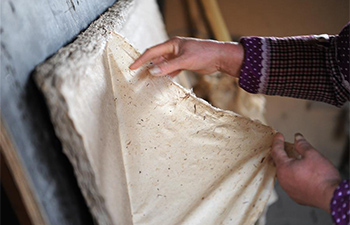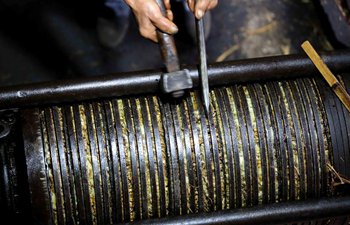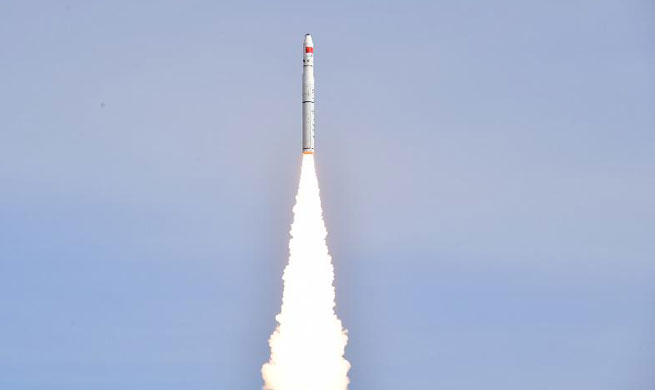WASHINGTON, Jan. 19 (Xinhua) -- U.S. researchers have taken a major step forward in the fight against cancer by developing a single blood test that screens for eight common types of tumors in early stages.
Larger studies of the test, called CancerSEEK, which evaluates cancer-related proteins and gene mutations in the blood, are currently under way, according to research published in the Friday issue of U.S. journal Science.
The test was evaluated on 1,005 patients with nonmetastatic, stages I to III cancers of the ovary, liver, stomach, pancreas, esophagus, colorectum, lung or breast, as well as over 800 healthy control individuals.
It showed that the test was 99 percent specific, meaning that the likelihood of a healthy individual receiving a false positive result was less than one percent.
The median overall sensitivity, or the accuracy rate to detect cancer, was 70 percent, ranging from a high of 98 percent for ovarian cancer to a low of 33 percent for breast cancer.
For the five cancers that have no screening tests -- ovarian, liver, stomach, pancreatic and esophageal cancers -- sensitivity ranged from 69 percent to 98 percent.
In 83 percent of cases, the test also provided information about the tissue-of-origin of the cancer - a feat that has been difficult in past.
"This test represents the next step in changing the focus of cancer research from late-stage disease to early disease, which I believe will be critical to reducing cancer deaths in the long term," study author Bert Vogelstein of the Johns Hopkins University said in a statement.
CancerSEEK is noninvasive and works by assessing mutations in 16 cancer genes as well as the levels of eight circulating protein biomarkers.
In principle, it should be administered by primary care providers at the time of other routine blood work.
The researchers estimated that the cost may be less than 500 U.S. dollars, which is comparable to or lower than current screening tests for single cancer types.
Mangesh Thorat, deputy Director of the Barts Clinical Trials Unit at Queen Mary University of London, said the test looks promising but a significant amount of further research is needed. .
"This is only a case-control study, and therefore needs further evaluation in large cohorts more representative of general population where such screening might be introduced," Thorat said.
He also said the sensitivity of the test in stage I cancer is quite low at about 40 percent,
"Even with stage I and II combined it appears to be around 60 percent. So the test will still miss a large proportion of cancers at the stage where we want to diagnose them," Thorat added.

















